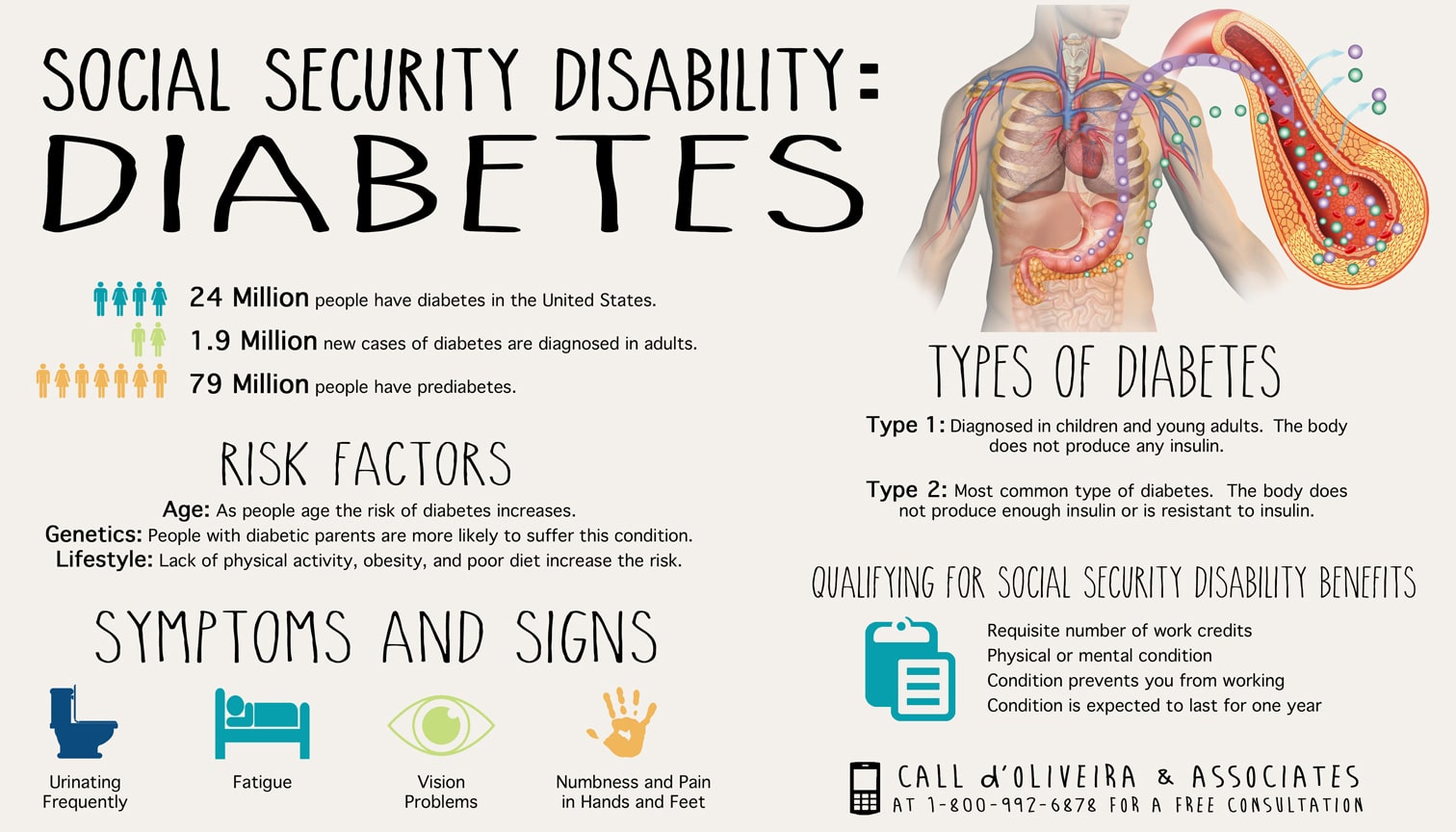Diabetic neuropathy, a nerve disorder triggered by diabetes, can cause significant suffering and disruption in daily life. People often struggle with debilitating symptoms, including nerve pain, numbness, and digestive problems. However, does it qualify as a disability? Let's tackle this question head-on.

Under some circumstances, the answer is yes. The Americans with Disabilities Act (ADA) does consider conditions that substantially limit a major life activity to be disabilities. For many, the severity of their diabetic neuropathy symptoms can indeed limit activities, thus classifying it as a disability.
But it's not always cut and dry. There are specific qualifiers case-by-case, dependent on the severity of a person's condition, the specific limitations they face, and how it impacts their daily life. It's important to understand these nuances when discussing diabetic neuropathy in the context of disability law.
Understanding Diabetic Neuropathy: A Quick Overview
Diabetic neuropathy is a type of nerve damage that can occur with diabetes. It primarily affects the nerves in your legs and feet. Recent research confirms that about half of people with diabetes will develop neuropathy.
Diabetic neuropathy causes distinct symptoms which vary depending on the type of neuropathy and which nerves are affected. Some people feel nothing at all, while others experience symptoms like numbness, tingling, or pain, especially in the extremities.
| Most Common Symptoms | Explanation |
|---|---|
| Numbness or reduced ability to feel pain or temperature changes | A "pins and needles" feeling that's usually worst at night. |
| Sharp pains or cramps | Increased sensitivity to touch — for some people, even a bedsheet's weight can be painful. |
| Muscle weakness | Loss of balance and coordination. |
| Serious foot problems, such as ulcers, infections, deformities, and bone and joint pain | These issues are caused by numbness in your feet. |
Now, let's get into the causes. High blood sugar (glucose), which is a hallmark of diabetes, injures nerves throughout your body. It's evident that the longer you have diabetes, and the less controlled your blood sugar is, the more likely you are to develop diabetic neuropathy.
Managing your sugars and maintaining a healthy lifestyle is crucial to slow the progression of neuropathy:
- Keep your blood sugar levels within your target range.
- Follow a balanced diet with plenty of fruits, vegetables, and whole grains.
- Incorporate sufficient physical activity in your daily routine.
- Avoid smoking and limit alcohol.
By understanding diabetic neuropathy, we can take steps to manage it effectively. Don't think of it as inevitable. Instead, armed with knowledge, you can take charge of your health and lead a comfortable and active life, even with diabetes.
Diabetic Neuropathy and Disability: The Connection
Navigating the world of diabetes involves understanding more than just blood sugar levels and diet. One such factor, diabetic neuropathy, is a complication of the condition that's often misunderstood. It's a type of nerve damage occurring generally due to high blood sugar levels.
Now you may be wondering, can diabetic neuropathy be considered a disability? To answer this, we'll need to look at legislation. In the United States, the Social Security Administration recognizes diabetic neuropathy as a disability under certain conditions, meaning patients might be eligible for financial help.
This classification depends largely on how the neuropathy affects someone’s ability to perform normal daily activities. A walking impairment or inability to use your hands effectively, caused by diabetic neuropathy, could potentially qualify someone as disabled.
Here's a rundown of what's taken into consideration:
- Severity of symptoms
- Interruption of daily activities
- Effect on work performance
- Need for assistive devices
Although diabetic neuropathy doesn't automatically qualify you as disabled, the degree to which it affects your job performance and everyday activities does. It's thus crucial to discuss these aspects in depth with your doctor, who can then offer expert advice tailored to your specific circumstances. Also, ensure to keep a detailed record of your symptoms, treatments, and their effectiveness.
Remember, living with diabetic neuropathy doesn't necessarily mean giving up work or the activities you love. Resources, ranging from symptom management to financial support, are available. Our aim is to provide you with these perspectives and options to navigate this journey more comfortably.
Know that each person's experience with neuropathy varies. It's essential to note that some people might experience just slight discomfort, while for others, symptoms may be severe and debilitating.
We want to emphasize that your healthcare provider remains the best resource for advice pertaining to your personal situation. Their knowledge and insights are invaluable in assessing your conditions and discussing potential disability claims. They can guide you through the process of managing your symptoms, working within your limitations, and, if necessary, applying for disability.

Conclusion: Diabetic Neuropathy as a Disability - The Final Verdict
We've learned that a question often asked is whether diabetic neuropathy can be classified as a disability. From our examination of various medical and legal resources, the answer is quite clear: It's not a cut-and-dried situation. The designation of diabetic neuropathy as a disability is largely contingent upon how severely it affects an individual in their day-to-day life.
The Social Security Administration in the U.S addresses disability claims for peripheral neuropathy (the most common type of diabetic neuropathy) under listing 11.14 Peripheral Neuropathies, provided the conditions outlined are adequately met. Diabetes with significant peripheral nerve damage that greatly inhibits the individual's ability to perform essential work duties or maintain gainful employment could potentially be considered a disability under the Social Security Act.
However, it's important to remember that each case is unique. Factors considered by the SSA include:
- Severity of the neuropathy
- The extent that neuropathy limits activities of daily living
- The effectiveness of prescribed treatment
- The presence of other health conditions
It's also crucial to note that meeting the medical criteria isn't enough on its own. Comprehensive proof is required, detailing how the neuropathy impacts the individual's ability to perform work-related tasks. This is usually achieved through a combination of medical records, physician's notes and personal testimony.
So, while diabetic neuropathy can qualify as a disability, the threshold for qualification is high. Our advice? We suggest you speak with legal or health professionals for guidance on this issue, to gather as much factual information as possible and make the best decision for your unique situation.
References, Studies and Sources:
https://www.klnivenlaw.com/blog/when-can-neuropathy-can-be-a-qualifying-condition-for-ssdi-benefits/
More About Circufiber.com and Healthcare disclaimer:
Always consult your physician before beginning any program. This general information is not intended to diagnose any medical condition or to replace your healthcare professional. If you experience any pain or difficulty, stop and consult your healthcare provider. Circufiber.com socks are clinically proven to improve micro-circulation in feet and lower extremities in people with Diabetes.
More Author Information:
Dr. Capozzi is a board-certified foot surgeon through the American Board of Foot and Ankle Surgery. He is a Diplomate of the American Academy of Wound Management and Fellow of the American College of Foot and Ankle Surgeons. He completed a three-year residency program in Foot and Ankle Reconstructive Surgery at St. Francis Hospital & Medical Center in Hartford, CT in 2010. Dr. Capozzi is a board-certified Wound Specialist® granted by the American Academy of Wound Management. He is also board-certified in Foot Surgery through the American Board of Foot and Ankle Surgery.




